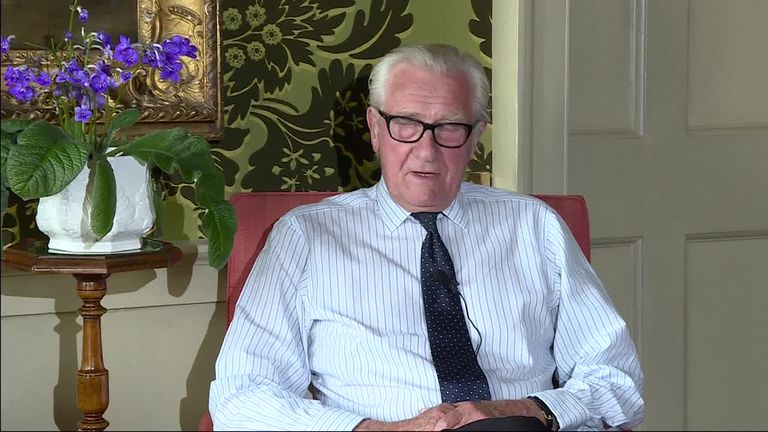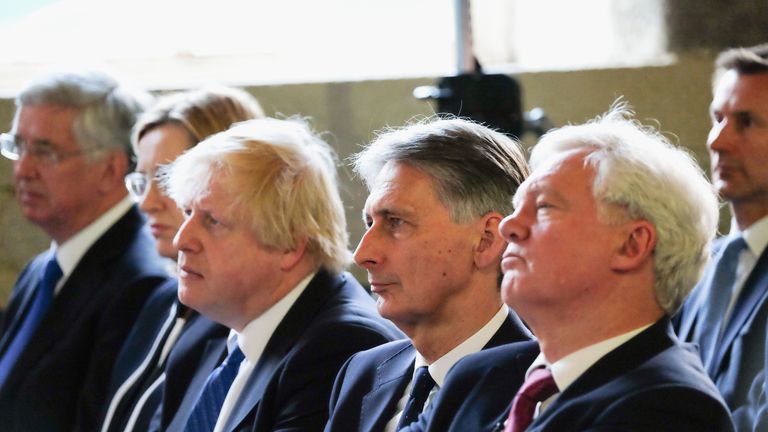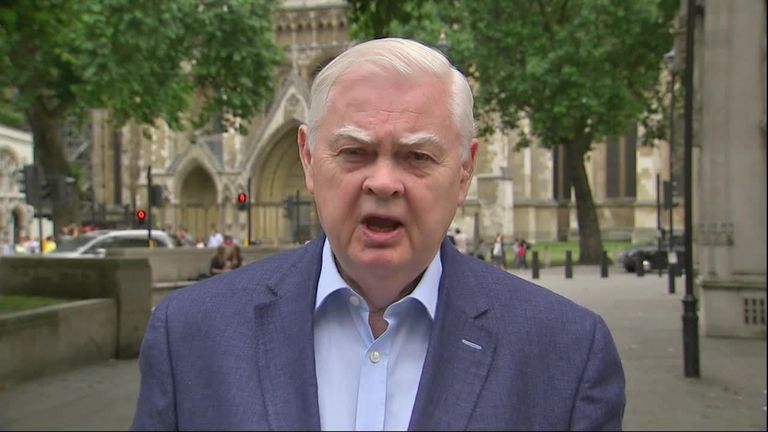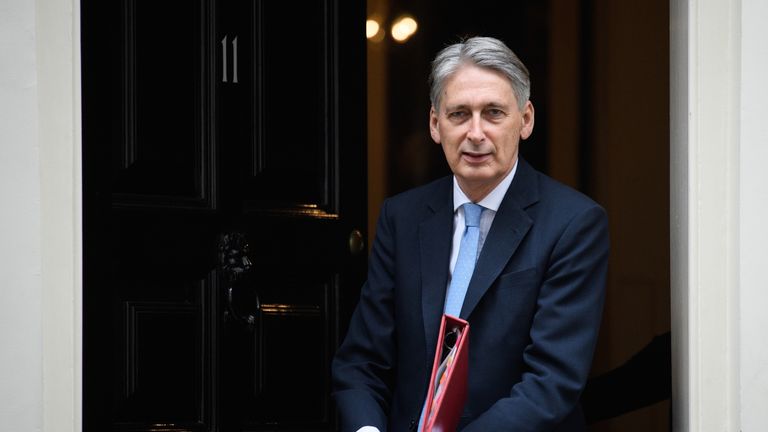Downing Street power vacuum has unleashed Tory civil war
The fault line that has run through the party for decades over Europe that burst open during the referendum has blown up again.
Tuesday 18 July 2017 09:11, UK
It was billed as the snap election to strengthen Theresa May's negotiating hand in Brussels, but instead it has left her too weak to control her own Cabinet amid tensions over the terms of Brexit.
The fault line that has run through the Tory party for decades over Europe that burst open during the referendum campaign in 2016 has blown up once more: there is a power vacuum in No 10 and it has unleashed a civil war.
There is intense jostling for position as the would-be successors to the mortally wounded Mrs May - Boris Johnson, David Davis, Philip Hammond - stake their claim to her crown and knife each other (look to the ).
But there is also a more substantive issue that is fuelling these tensions around what sort of Brexit Britain fights for over the next 18 months. Around the Cabinet table the splits of the referendum campaign are re-opening.
Leading Brexiteers Mr Johnson and Michael Gove worry that key Remainer Mr Hammond is using the indecisive election result to frustrate, or at least soften, Brexit by pushing for a business-friendly exit.
It has engulfed the Cabinet in all-out war, with leaking and finger pointing at fever pitch.
One senior Tory on the Remain side of the debate has told me he believes Mr Johnson and Mr Gove were behind the attacks on Mr Hammond.
Obsessed by a hard Brexit, "they are prepared to run the economy off a cliff" said the source, adding that the two Brexiteers are irked by the Chancellor's insistence that the Tories will put victory at the next election at risk if they push for an "ideological" Brexit over an "economic" one.
Of course the Tory party has been here before.
There were the wilderness years at the turn of the millennium - the Iain Duncan Smith and William Hague period - when the infighting became so bitter that Michael Howard was installed as a caretaker leader to re-unify the party.
The infighting evokes memories of the embattled premiership of Sir John Major, who became so worn down by the running battles over Europe that he resigned (and was re-elected Tory leader) in a bid to silence his critics; The Tories then lost the next three elections.
Mrs May's spokesperson tried to re-assert her authority, after astonishing Cabinet leaks over the weekend.
She might not find much support around her Cabinet table, but in the bowels of the backbenches, MPs are growing increasingly exasperated by the manoeuvrings of more senior colleagues.
One MP has told me he wants to see Mrs May to "get a grip" and warned the continuous infighting only served to propel Labour leader Jeremy Corbyn closer to No 10.
So, with the support of the parliamentary party, and crucially the chair of the 1922 backbench committee Graham Brady, Mrs May won't face an imminent leadership challenge.
But what happens when the meat is put on to the bones of the Brexit deal - the cost of the divorce, the compromise of citizens' rights, the transition arrangements?
Hopelessly divided already, it's easy to see how Mrs May's Conservatives could implode over the nuts and bolts of Brexit.
After a bruising couple of months, the summer recess can't come soon enough for the PM. But it can only offer some brief respite from those Cabinet wars.
The snap election has left Mrs May with the worst of both worlds, in Downing Street but not in power.
Expect hostilities to resume in time for Tory party conference in October.








